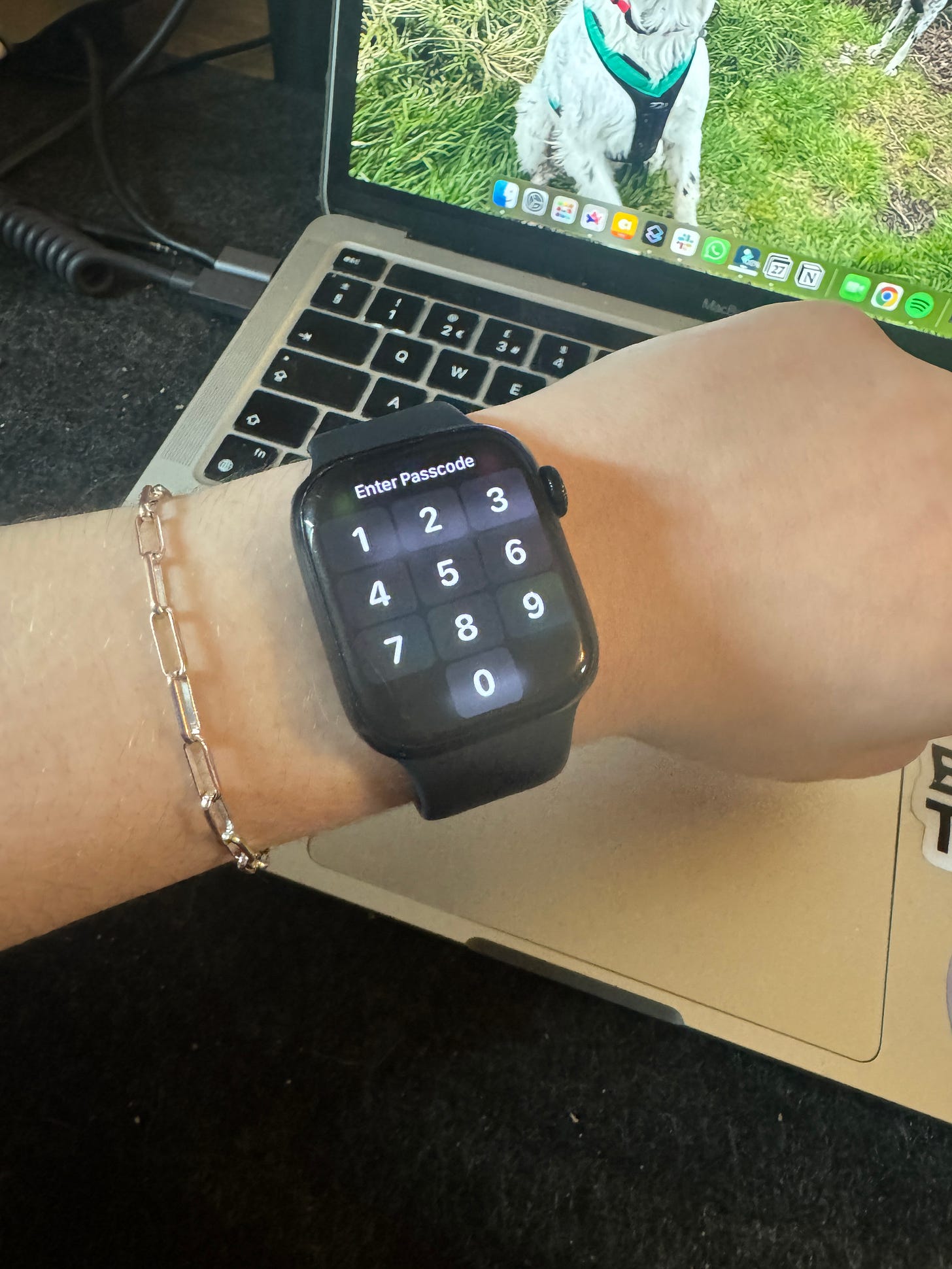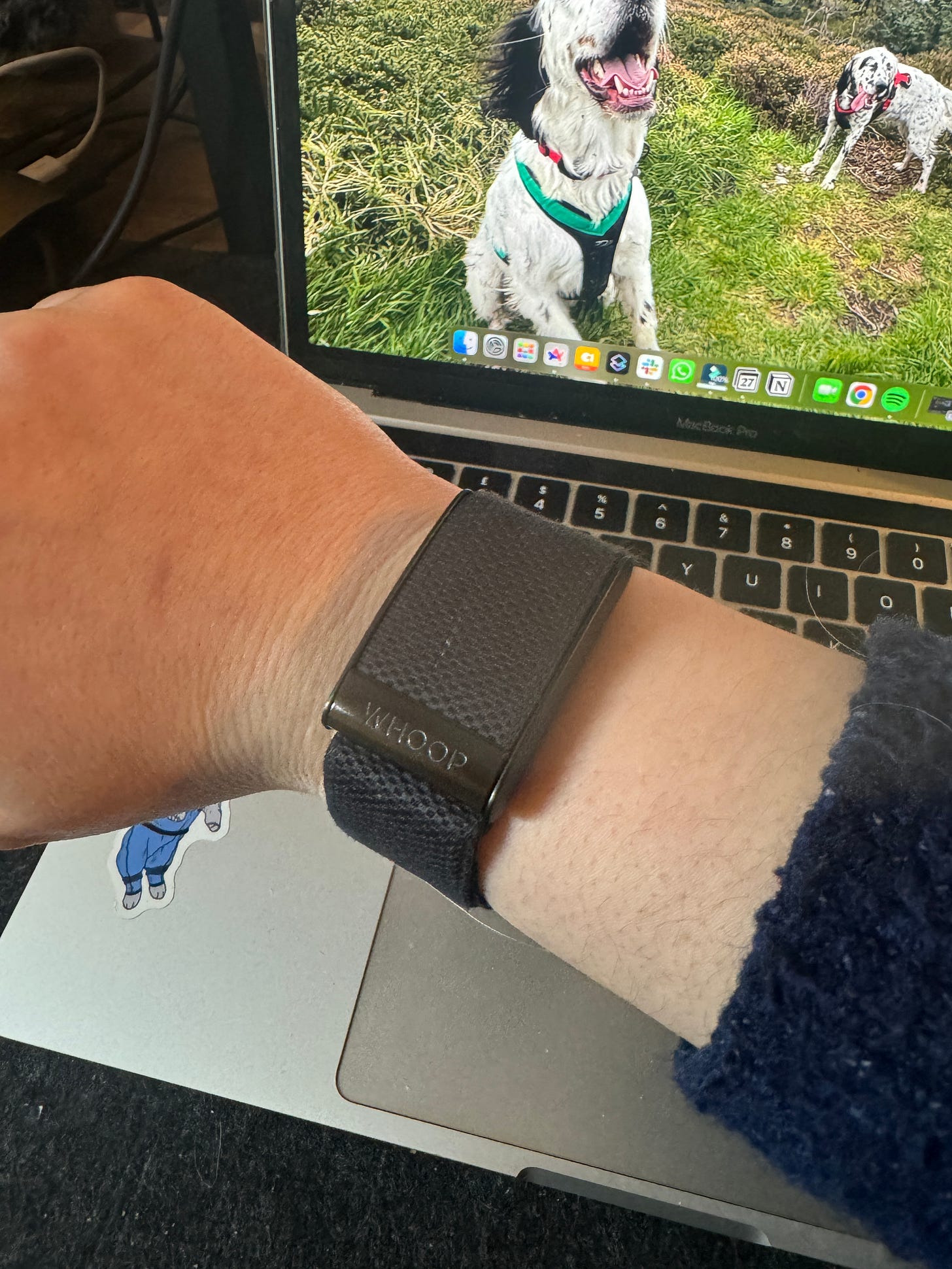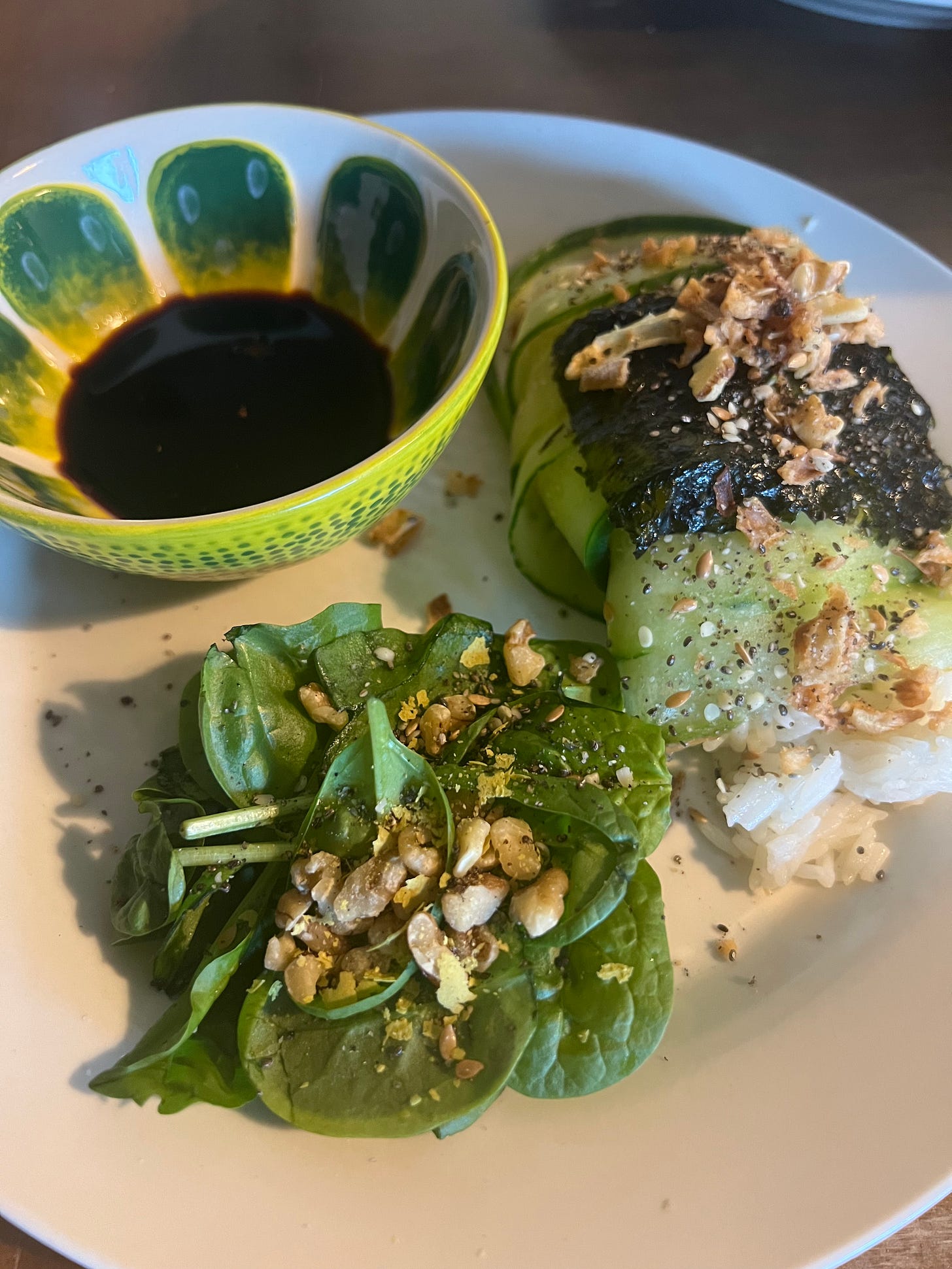How AI Has Changed My Life & How It Can Change Yours Too.
Everyone is showcasing every business use case under the sun, but forgetting what it can do for you on a day to day basis to improve your life.
In the fast-paced world we live in, Artificial Intelligence (AI) is like that cool new friend who's changing the game, not just in big businesses or fancy labs, but right in our living rooms, kitchens, and even our pockets. While everyone's busy talking about how AI is revolutionizing industries and making machines smarter, there's another side to the story that's just as exciting but not getting enough spotlight. It's about how AI is sneaking into our daily lives, making things easier, more fun, and yes, a bit more like living in the future we used to dream about.
Gone are the days when AI was just for techies or big corporations. Today, it's for you and me, helping us to juggle our schedules, stay on top of our health, learn new stuff faster, and even decide what to binge-watch next. This article is all about peeling back the curtain to show you how AI can be your personal sidekick, making every day a bit smoother and more enjoyable.
Imagine having a buddy who remembers all your appointments, nudges you to move more, gives you a heads-up on your spending habits, and even suggests the perfect playlist for your mood. That's AI for you, slipping into our personal lives in ways we might not even notice, but definitely appreciate. From smart assistants that keep us organized to apps that tailor learning to fit our pace, AI is not just about doing things better; it's about adding a personal touch to the tech in our lives.
So, whether you're a gadget geek eager to try out the latest AI toys or someone just looking to make your day a little less hectic, there's a slice of AI out there for you. This article will walk you through the practical ways AI can fit into your life, making things not just simpler but also a lot more interesting. Let's dive into how this tech isn't just changing the world—it's changing our everyday experiences, making the future a place we can start living in right now.
Health & Well Being
Health and well-being are the most obvious place to start. Thankfully, AI is here to lend a hand, making it easier than ever to keep track of our physical and mental health, and even our diets. Here's how AI is quietly revolutionizing the way we approach our health and wellness routines and the exact tools I’m using.
Fitness and Health Tracking
Gone are the days of guessing if you're getting enough exercise or sleep. Wearables and health apps powered by AI are like having a personal trainer and sleep consultant wrapped around your wrist. These smart gadgets monitor your heart rate, count your steps, analyze your sleep patterns, and even nudge you to move around if you've been sitting for too long. But it doesn't stop there; by crunching your health data, AI can tailor workout and recovery plans just for you, making your fitness journey more effective and enjoyable.
On my left wrist I wear an Apple Watch Series 7 and on my right wrist I wear a Whoop 4.0. I started leveraging AI for the fitness element of my wellbeing 62 days ago and it’s completely changed how I do everything.
Whoop now has a built in AI coach. It takes proprietary Whoop algorithms, a custom-built machine learning model, the latest in performance science and research, and your unique biometric data to identify patterns and connections in your Whoop data. With OpenAI’s latest technology, Whoop Coach generates highly individualized, conversational responses to your health, fitness, and wellness questions – all within seconds. It’s a personalised coach on a new level.
On the other hand (literally), the Apple watch allows me to track exactly what type of exercise I am doing and also tracks pretty much everything the whoop does and syncs everything to my Apple Health app. The benefit of this is that I can export all of that health data (including things like my cycle etc.) and I can have a monthly check in with AI to see what the data is telling me. I do this by importing the data into a custom GPT I have built within ChatGPT.
So far I have made the following progress:
Exercised daily since I started. Before that 3 times per week would have been my stretch goal (It’s like someone is holding me accountable even though I know it’s just AI)
My heart rate variability has improved 9% month over month
My sleep efficiency has improved to the top percentile of users of whoop and is consistently above 98%
My recovery rates are the biggest focus I have. After a stressful day or certain foods this score still varies for me. However it’s already helped me eliminate 3 core stressors from my routine that I previously would have never known about. This will likely take another 3-6 months before I have a consistent recovery rate is my estimate.
My meal times and what I eat has been significantly improved by the data (Eg. I have lower recovery times when I eat after dark etc.)
My restorative sleep has improved by 6% month over month.
Mental Health & Life Coaching Support
Mental health is as crucial as physical health, and AI is making strides in offering support here too. AI-powered apps provide a range of services, from conversational bots that offer a listening ear and coping strategies to sophisticated platforms that track your mood and suggest activities based on your emotional state. These tools are making mental health support more accessible and less intimidating, offering help and guidance whenever and wherever you need it.
For me, the impact that tracking my health and fitness had was the significant first step in terms of looking at my mental health. When you can see the main stressors in your life and can start to eliminate those, it did a lot for any anxiety I was experiencing. After I started to control these from the wearable devices I took this a step further and created a Custom GPT.
I took a few hours out and I sat down to write the knowledge base that was very custom to me. I explained my history, my past, where I am now and my core goals for the next year and the next 5 years. I was curious to see how well AI could be used as a therapist. I use this in conjunction with a real human therapist and it is fantastic. I can do my monthly checkin with my human therapist, update the knowledge base of my Custom GPT based on the conversation we had, and then I have 24/7 access to ask questions or work through a thought.
I can’t put a percentage improvement on my life in numbers, but this has provided excellent support to the tools I was already using in my life. This is probably the most controversial personal use of AI that I have on the list, but hey it’s working for me and that’s all that matters. I don’t think it’s a viable replacement for a human therapist, but it’s an excellent second pair of hands.
Diet and Nutrition
Imagine having a personal nutritionist in your pocket, advising you on your daily food intake, suggesting meal plans based on your dietary needs, and even helping you understand the nutritional content of your meals with a simple photo. AI-driven diet apps analyze your eating habits, offer personalized nutrition advice, and can even track your progress towards your health goals. Whether you're looking to lose weight, manage a health condition, or simply eat healthier, AI can provide the insights and encouragement you need to stay on track.
After a few weeks of wearing the Whoop and Apple watch together I got an excellent sense of my calories being burned and what my daily intake of food should be. To add a little complexity, I have started the year off vegan. This isn’t new to me, I previously was vegan for 5 years so I know the run of things. This time around I wanted to get a few things right. When you’re vegan it’s very easy to start eating a lot of carbs (like bread) because so many of them are easy to access and vegan. I also hate the idea of going vegan and just substituting meat with fake meat. It’s a nice treat but not a good way to be vegan.
I created a custom GPT with all of the information above. My exercise routine, my health data, my calories, my aesthetic goals etc. and asked it to make me 5 variations of a 7 day meal plan (because I can’t eat the same meal plan over and over or I’ll go mad). I then took it a step further and asked it to factor in food wastage and to ensure as many overlapping ingredients as possible. This allowed me to both save money and minimize my food waste in the same breath.
I then input an image of my food cupboard and fridge, tell it to ignore what I already have and to create a shopping list for me each week as I need it to.
Here’s some of the meals direct from ChatGPT. This has made life a ton easier week to week.
Personal Productivity
Personal productivity isn't just about managing your time well; it's about managing your attention and resources smartly. AI is stepping up as the ultimate tool for boosting personal productivity, helping us navigate through our busy lives with ease. AI is reshaping the way we organize our tasks, manage communications, and handle our finances.
Smart Assistants
Imagine having a personal assistant that's on call 24/7, ready to help with just about anything. That's what AI-powered smart assistants like Siri and Google Assistant have become. These handy helpers can manage your calendar, set reminders for your next meeting or grocery run, and even pull up information from the web in seconds. Need to find the best route to your next appointment or set a timer for your laundry? Just ask. By handling these small but time-consuming tasks, smart assistants free up your mental space for more important decisions and creative thinking.
I live in the Apple eco-system for both my work and personal life but one thing that has always been lacking is siri and Apple calendar. So when it comes to smart assistants and calendar management I live in the Google eco-system. I use a Google nest mini for day to day requests. I still find myself just manually adding things to my calendar though. I don’t think voice has quite caught up yet in terms of the realities of day to day life.
Personal Finance Management
Managing finances is a crucial part of personal productivity, but it's often met with procrastination or confusion. AI-driven finance apps are here to transform budgeting, investment advice, and financial planning from chores into seamless parts of your daily routine. These apps can track your spending, categorize expenses, and even offer insights into your financial habits. AI can analyze your financial health and goals to provide personalized advice, making complex financial decisions more straightforward and accessible. It's like having a financial advisor in your pocket, guiding you towards your financial goals with data-driven advice.
In each of these areas, AI is not just a tool but a partner in enhancing personal productivity. By automating routine tasks, providing personalized insights, and simplifying complex decisions, AI allows us to focus on what truly matters, making our daily lives not just more productive, but also more fulfilling. With AI's help, we can navigate our busy lives with greater ease and efficiency, leaving more room for creativity, relaxation, and personal growth.
Same as all the other areas on the list my financial goals for the next few years were input into a Custom GPT along with all the financial information I needed it to know. I needed a monthly budget that included saving for a mortage etc. I’m not going to share the exact spreadsheet here, but it’s exactly what you’re imagining. It reviews wasted spend from the previous month, makes recommendations, advises what to save, tips for saving money in different areas like subscriptions etc. It’s helped me get to 20.4% of my 2024 goals despite it only being the end of February. It’s about 4-5% ahead of where I would be without it based on my tracking of my financial information from last year.
Are you going to start leveraging AI in your personal life?
AI has proven to be a versatile and invaluable companion. It's like having a personal assistant, coach, and advisor all rolled into one, always ready to offer a helping hand, whether it's by keeping us on track with our fitness goals, offering support through mental health challenges, guiding our dietary choices, or helping us navigate the complexities of personal finance.
The beauty of AI lies in its ability to learn and adapt to our individual needs, making personalized recommendations that can help us lead better, healthier, and more fulfilling lives. By embracing AI in our personal lives, we're not just leveraging technology for convenience; we're tapping into a powerful resource that can help us achieve our full potential.
So, whether you're already riding the wave of AI in your daily routine or just starting to consider its possibilities, the message is clear: AI is here to stay, and its role in our personal lives is only set to grow. By staying curious and open to new technologies, we can make the most of what AI has to offer, turning everyday challenges into opportunities for growth and improvement. The future of personal AI is not just about smart gadgets and sophisticated algorithms; it's about creating a more connected, healthier, and productive world for all of us.








Grear suff keep it up!